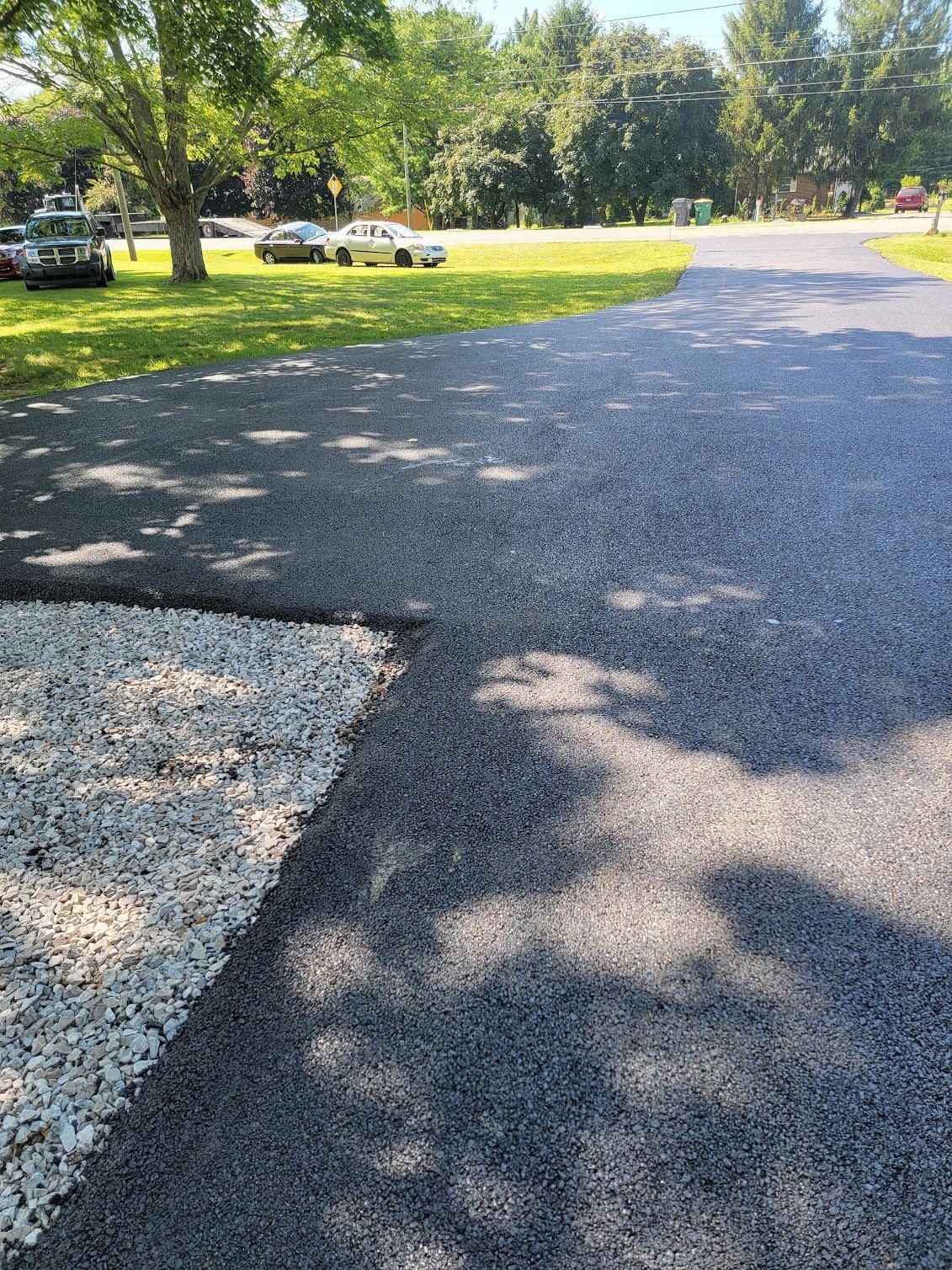When it comes to creating smooth, durable, and cost-effective surfaces, asphalt paving stands out as the preferred choice for roads, driveways, and parking lots. Asphalt is known for its flexibility, strength, and ability to withstand harsh weather conditions. Whether you’re a homeowner planning to install a new driveway or a business owner maintaining a commercial parking lot, understanding the fundamentals of asphalt paving can help you make informed decisions.
What Is Asphalt Paving?
Asphalt paving is the process of applying a mixture of aggregates (like crushed stone, sand, and gravel) combined with bitumen, a petroleum-based binder, to create a strong and durable surface. This mixture is heated and then laid down using specialized paving equipment to form roads, driveways, or parking areas. Once compacted, it creates a smooth, seamless surface that is both long-lasting and visually appealing.
Benefits of Asphalt Paving
1. Durability and Longevity
Asphalt is engineered to handle heavy loads and constant traffic. When properly installed and maintained, an asphalt surface can last 15 to 25 years or more. Regular maintenance like sealing cracks and applying sealcoat can further extend its lifespan.
2. Cost-Effective Solution
Compared to concrete, asphalt is more affordable to install and repair. Its materials are readily available, and installation takes less time, reducing labor and downtime costs.
3. Smooth and Safe Surface
Asphalt provides excellent traction and a smoother driving experience. Its flexibility helps reduce the risk of cracking and potholes, ensuring safety for vehicles and pedestrians.
4. Eco-Friendly Material
Asphalt is one of the most recycled construction materials in the world. Old asphalt can be reclaimed, reheated, and reused in new projects, making it an environmentally sustainable option.
5. Weather Resistance
Asphalt performs well in both hot and cold climates. It can expand and contract with temperature changes, minimizing the risk of structural damage.
The Asphalt Paving Process
A successful asphalt paving project requires careful planning, proper equipment, and expert craftsmanship. Here’s a breakdown of the general process:
1. Site Preparation
The paving team begins by assessing and preparing the site. This includes removing old pavement, grading the area, and ensuring proper drainage. A stable foundation is essential to prevent future cracking or sinking.
2. Base Installation
A strong base layer made of crushed stone or gravel is laid down and compacted. This foundation supports the asphalt and provides stability under heavy loads.
3. Asphalt Application
Hot mix asphalt is transported from the plant to the site and spread evenly using a paving machine. The mixture is laid at a precise temperature to ensure proper compaction and smoothness.
4. Compaction and Finishing
The final step involves rolling and compacting the asphalt using heavy rollers. This ensures a dense, durable surface free of air pockets or weak spots. Once compacted, the pavement needs time to cool and harden before use.
Types of Asphalt Paving
There are several types of asphalt mixes, each designed for specific applications:
- Hot Mix Asphalt (HMA): The most common type used for highways and heavy-traffic areas. It is applied while hot and provides superior durability.
- Warm Mix Asphalt (WMA): Requires lower production temperatures, reducing fuel consumption and emissions.
- Cold Mix Asphalt: Used for minor repairs and patching during colder weather. It’s not as durable as HMA but offers quick fixes for temporary needs.
- Porous Asphalt: Ideal for parking lots, this type allows water to drain through the surface, reducing runoff and improving drainage.
Maintenance Tips for Asphalt Pavement
Proper maintenance is crucial to maximizing the lifespan and performance of your asphalt surface. Here are a few essential tips:
- Sealcoating: Apply a protective sealcoat every 2–3 years to shield the surface from UV rays, oil spills, and water damage.
- Crack Filling: Repair cracks early to prevent them from expanding and leading to costly structural damage.
- Regular Cleaning: Remove dirt, debris, and chemicals that can deteriorate the asphalt over time.
- Drainage Management: Ensure that water flows away from the surface to prevent erosion and cracking.
- Professional Inspection: Schedule annual inspections to identify and address potential issues early.
Common Asphalt Problems and Solutions
Even with proper installation, asphalt surfaces can develop issues over time. Some common problems include:
- Cracks and Potholes: Caused by water infiltration and heavy traffic; can be fixed with crack filling and patching.
- Rutting: Grooves or depressions formed by repeated vehicle loads; resurfacing can restore a smooth finish.
- Raveling: The loss of aggregate particles from the surface; applying a sealcoat can prevent further damage.
- Fading: Sun exposure causes color loss; sealcoating helps restore the appearance and protect against oxidation.
Why Hire Professional Asphalt Contractors
DIY asphalt paving might seem appealing, but professional expertise ensures long-term results. Experienced paving contractors use high-quality materials, advanced equipment, and precise techniques to deliver superior outcomes. They can also help design, plan, and execute the project efficiently while meeting all safety and environmental standards.
Final Thoughts
Asphalt paving is a reliable and efficient solution for residential driveways, commercial lots, and public roads. With its affordability, durability, and sustainability, it’s no wonder asphalt remains the most popular paving choice worldwide. By investing in professional installation and consistent maintenance, you can ensure your asphalt surface stays smooth, safe, and visually appealing for years to come.

